
Carbohydrates
Carbohydrates—fiber, sugars, and starch—are the body’s preferred fuel. When we eat them, our bodies switch from burning fat to burning carbs. We can certainly gain weight from eating carbs, but it’s more from sparing our own fat from being used, rather than adding more fat directly.
When proponents of low-carb diets demonize carbohydrates, public health advocates are quick to point out that it’s the source that matters—carbohydrates can mean everything from lentils to lollipops. Though that’s true, the Standard American Diet sadly tends to lean more toward the lollipop end of the spectrum. We eat about three times as many calories from refined grains and added sugars as we do from all whole plant foods combined. So the problem identified by the low-carb proponents is real. We are awash in refined grain garbage, but the answer isn’t to switch to high-fad, high-fat diets but rather to low-crap ones.
What about a very-low-carb diet like an Atkins diet? There is no significant drop in insulin levels on very-low-carb diets. Instead, there is a significant rise in “bad” LDL cholesterol levels and a significant crippling of artery function, which helps explain why those eating more low-carb diets tend to live significantly shorter lives.
In contrast, in a study out of MIT, researchers increased the carbohydrate intake of participants by up to hundreds of grams a day, yet their insulin levels went down. How is that possible? The researchers weren’t feeding people jelly beans and sugar cookies; they fed them whole plant foods—lots of whole grains, beans, fruits, and vegetables.
Indeed, when researchers put people on a plant-based diet and a modest, mostly walking-based exercise program, within three weeks, their bad cholesterol dropped by 20 percent and their insulin levels plummeted by 30 percent, despite a 75 to 80 percent carbohydrate diet.
Image Credit: Adobe Stock
Popular Videos for Carbohydrates

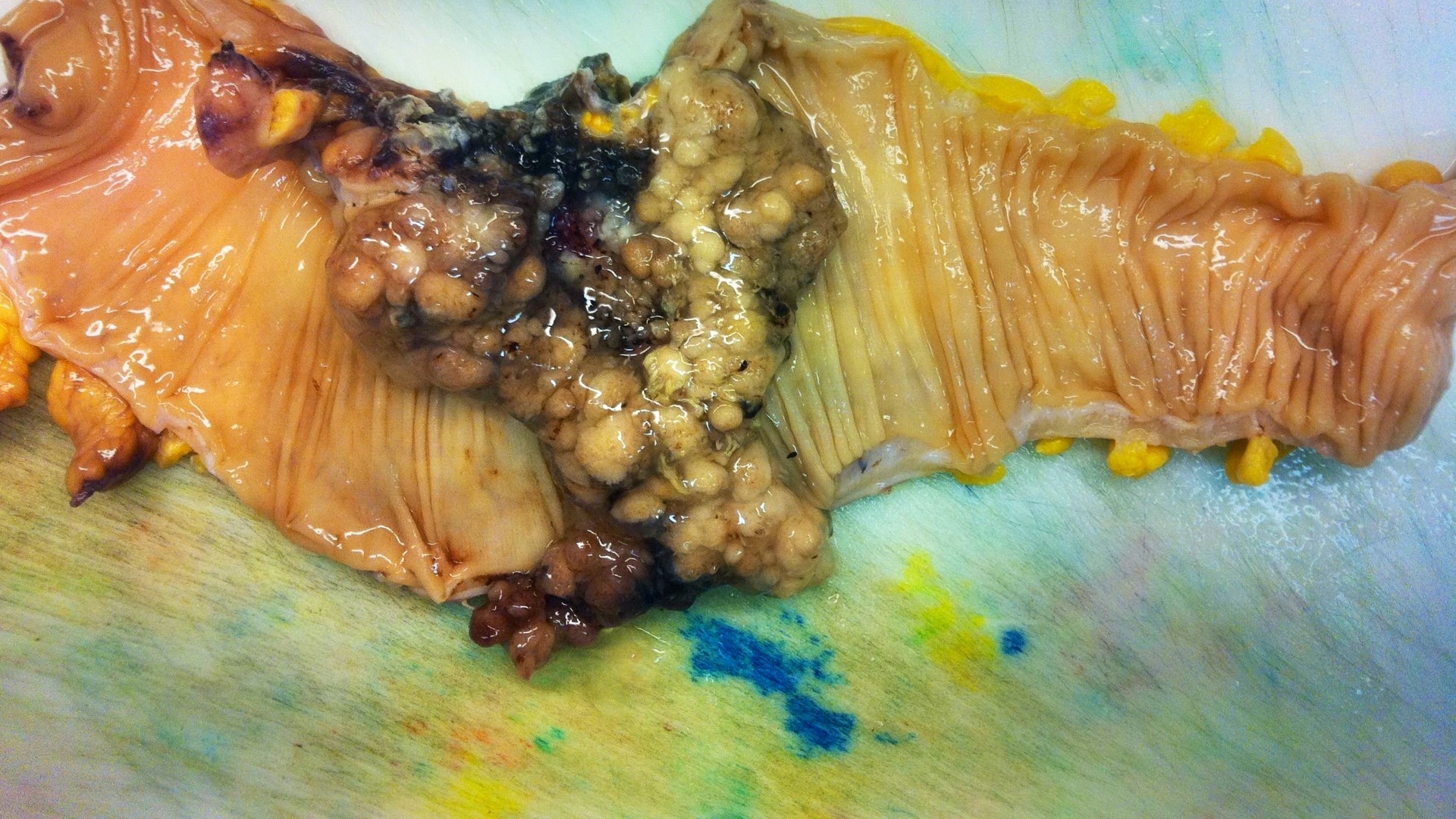
Resistant Starch and Colon Cancer
Fiber isn’t the only thing our good gut bacteria can eat. Starch can also act...
Benefits of a Macrobiotic Diet for Diabetes
What happens when you add massive amounts of carbs to the daily diet of type...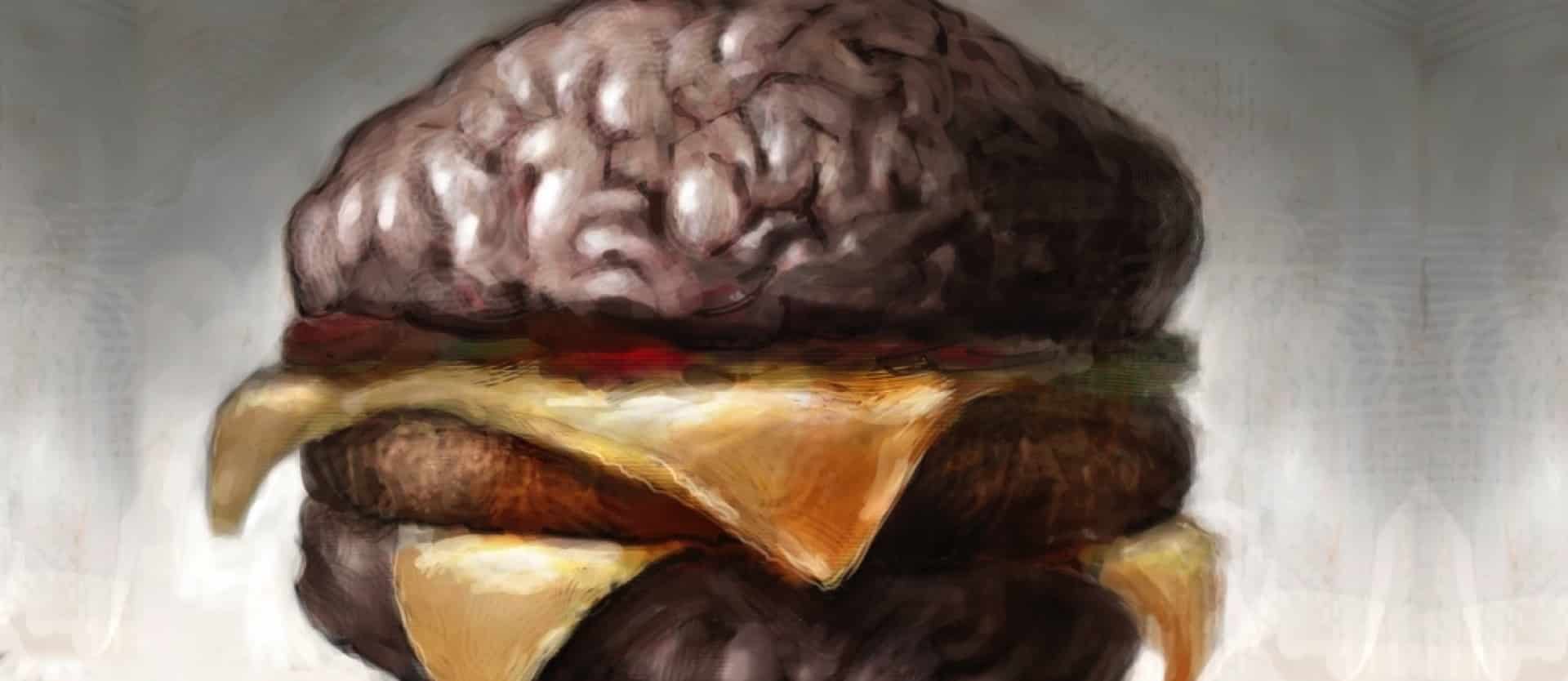
Alzheimer’s Disease: Grain Brain or Meathead?
Grain consumption appears strongly protective against Alzheimer’s disease, whereas animal fat intake has been linked...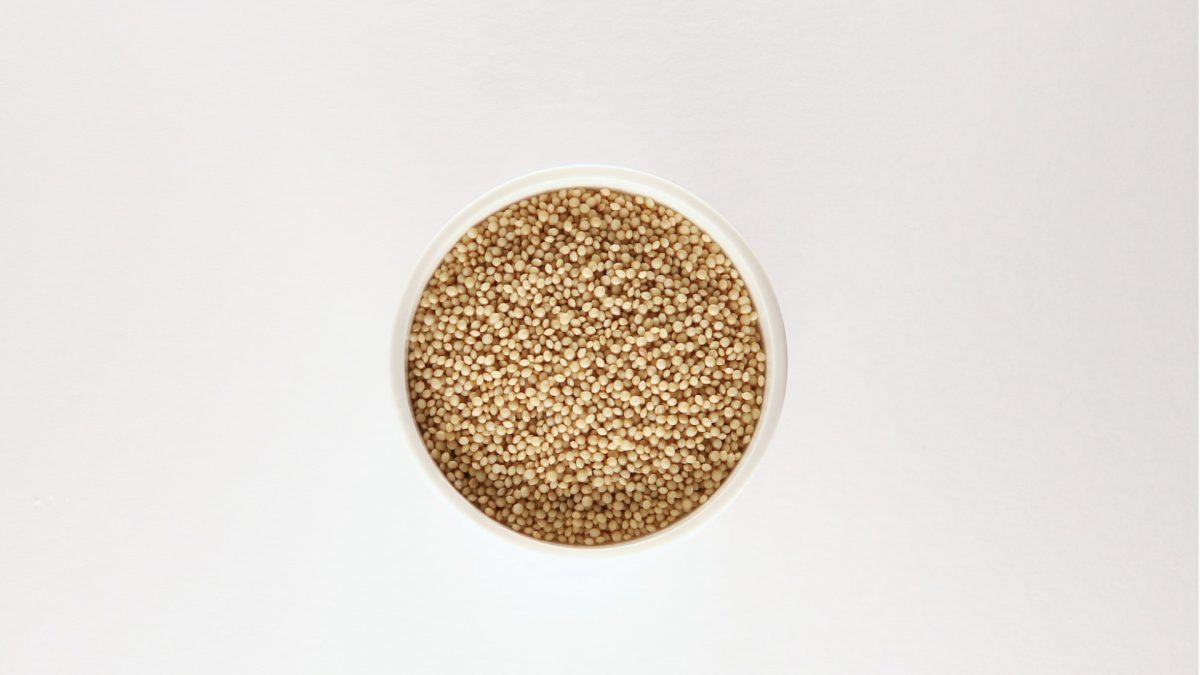
Are Ancient Grains Healthier?
Ancient wheats like kamut are put to the test for inflammation, blood sugar, and cholesterol...
Benefits of Quinoa for Lowering Triglycerides
How do the nutrition and health effects of quinoa compare to whole grains?
Oatmeal Diet Put to the Test for Diabetes Treatment
What are the extraordinary, lasting benefits we may get from a few days of an...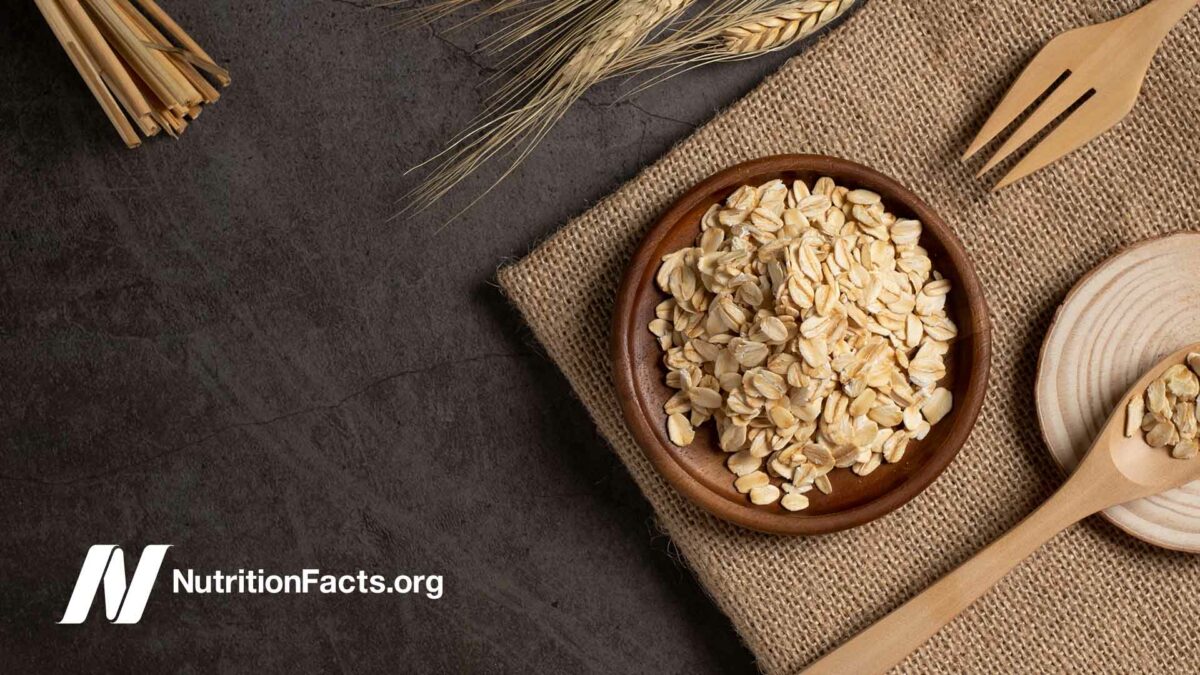
Can Oatmeal Reverse Heart Disease?
Less than 3% of Americans meet the daily recommended fiber intake, despite research suggesting high-fiber...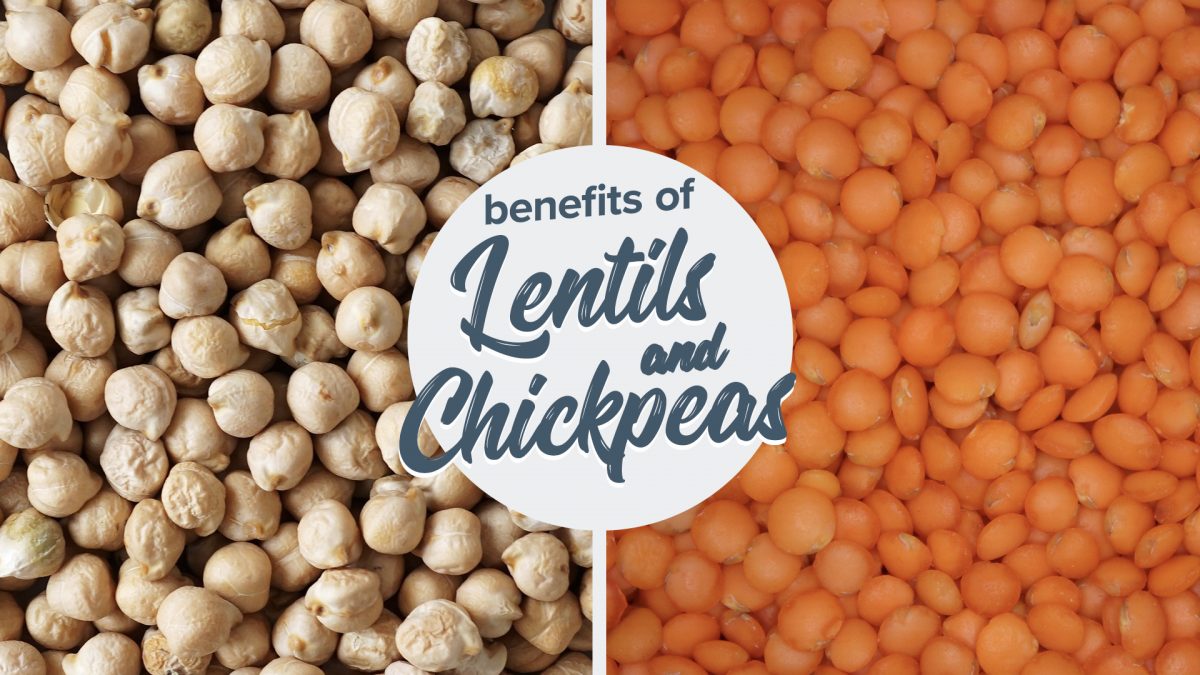
Benefits of Lentils and Chickpeas
Lentils and chickpeas, also known as garbanzo beans, are put to the test.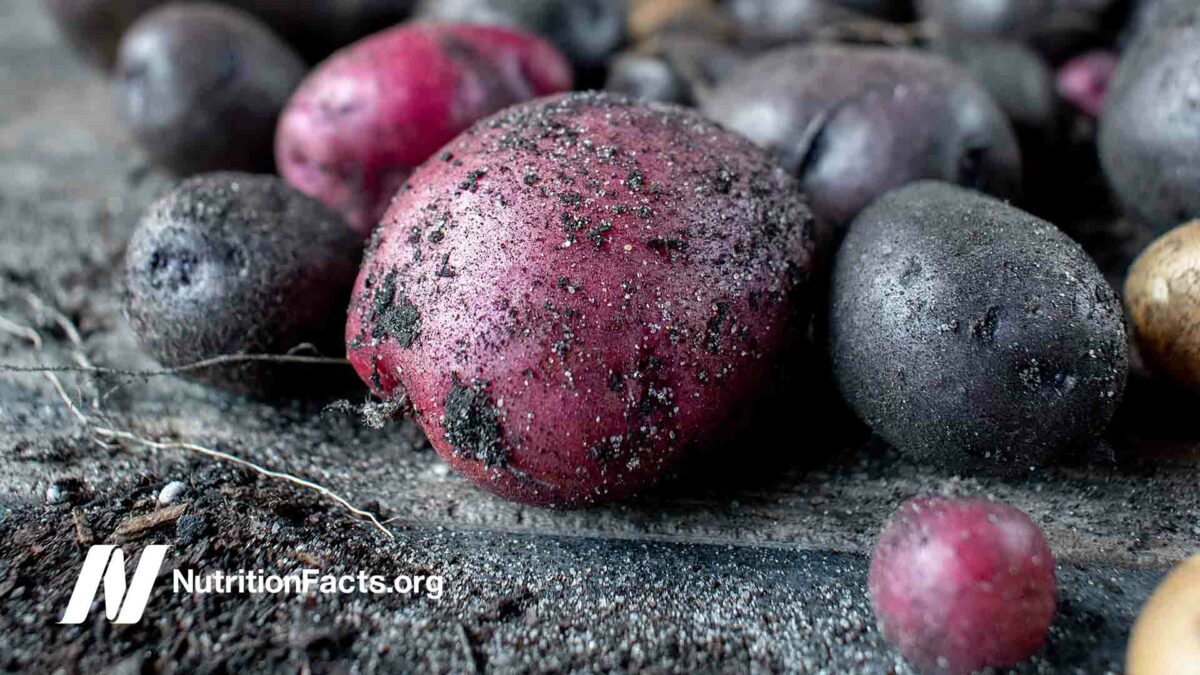
The Healthiest Type of Potato
Are yellow-fleshed potatoes healthier than white? And, what about the glycoalkaloid toxins?All Videos for Carbohydrates
-

The Healthiest Type of Potato
Are yellow-fleshed potatoes healthier than white? And, what about the glycoalkaloid toxins?
-

How to Reduce the Glycemic Impact of Potatoes
Broccoli, vinegar, and lemon juice are put to the test to blunt the glycemic index of white potatoes.
-

Glycemic Index of Potatoes: Why You Should Chill and Reheat Them
If you eat potatoes when they’re cold, as in potato salad, or chilled and reheated, you can get a nearly 40 percent lower glycemic impact.
-

Do Potatoes Increase the Risk of High Blood Pressure and Death?
Do potato eaters live longer or shorter lives than non-potato eaters?
-

Do Potatoes Increase the Risk of Diabetes?
Does the link between white potatoes and diabetes extend to non-fried potatoes without butter or sour cream?
-

Studies on Millet Nutrition: Is It a Healthy Grain?
Millet isn’t the name of a specific grain, but a generic term that applies to a number of totally different plants. Which is the most healthful?
-

Is Sorghum a Healthy Grain?
How does sorghum compare with other grains in terms of protein, antioxidants, and micronutrients? And the benefits of red sorghum compared to black and white varieties.
-

Are Ancient Grains Healthier?
Ancient wheats like kamut are put to the test for inflammation, blood sugar, and cholesterol control.
-

Gut Microbiome – Strike It Rich with Whole Grains
What can we eat to increase good gut bacteria richness in our colon?
-

Getting Starch to Take the Path of Most Resistance
How might beans, berries, and intact (not just whole) grains reduce colon cancer risk?
-

Resistant Starch and Colon Cancer
Fiber isn’t the only thing our good gut bacteria can eat. Starch can also act as a prebiotic.
-

Alzheimer’s Disease: Grain Brain or Meathead?
Grain consumption appears strongly protective against Alzheimer’s disease, whereas animal fat intake has been linked to dementia risk.
